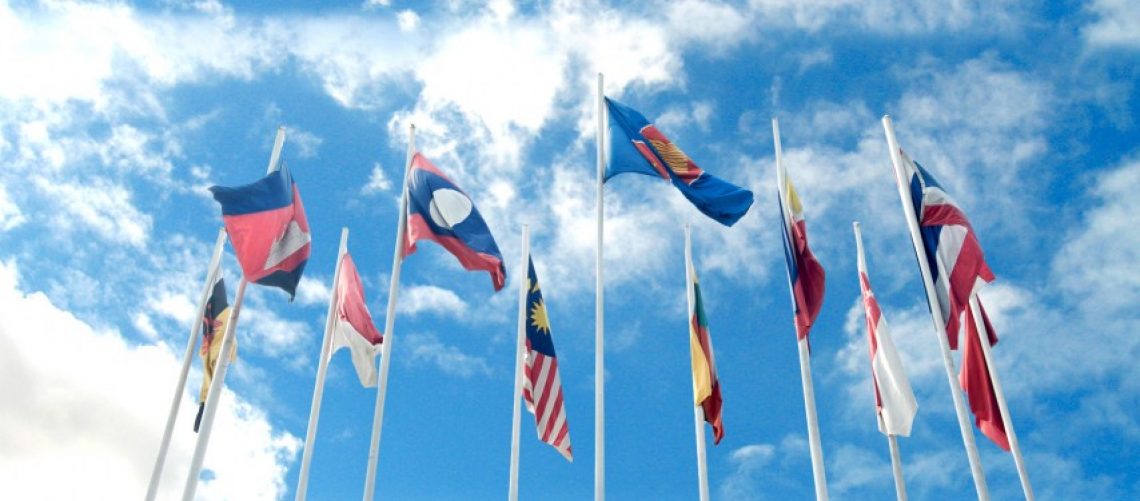- The Third ASEAN-Canada Dialogue was held in Manila on 25 – 26 May 1982.
- The Meeting was attended by delegations from Indonesia, Malaysia, the Philippines, Singapore, Thailand and Canada. The Secretary-General of the ASEAN Secretariat and members of his staff were also present.
- Mr. Sime D. Hidalgo, Director-General, ASEAN Philippines and Mr. W.T. Delworth, Assistant Under-Secretary, Department of External Affairs, Canada, jointly chaired the Meeting.
- The Meeting re-affirmed support for the progress of the existing projects under the ASEAN-Canada dialogue namely, the ASEAN-Canada Forest Tree Seed Centre Project and the ASEAN-Canada Fisheries Post-Harvest Technology Project.
- The Meeting identified specific areas for cooperation in the industrial and Commercial sectors, Agriculture and Forestry, Energy, Science and Technology, Transportation and Communication, Human Resource Development, and Information and Culture. In this regard, the meeting welcomed the extended range of Canadian programmes offered in industrial Cooperation and institutional Cooperation, and the Management for Change Programmes in addition to the more traditional development cooperation projects. The meeting also recognized the opportunities available through Canadian resources and expertise, especially in encouraging the transfer of technology.
- The Meeting agreed that, pursuant to the Agreement on Economic Cooperation between ASEAN member countries and Canada signed by the ASEAN and Canadian Foreign Ministers in New York on 25 September 1981, implementation of cooperative endeavours between ASEAN and Canada shall henceforth be pursed through the ASEAN-Canada joint Cooperation Committee (JCC), which will officially come into being June 1, 1982.
- The Meeting was held in a spirit of cooperation and cordiality which has traditionally characterized relations between Canada and ASEAN. The Canadian delegation expressed its sincere appreciation for the warm hospitality extended by the Philippine hosts and for the excellent arrangements for the meeting.
- ABOUT ASEANThe Association of Southeast Asian Nations, or ASEAN, was established on 8 August 1967 in Bangkok, Thailand, with the signing of the ASEAN Declaration (Bangkok Declaration) by the Founding Fathers of ASEAN: Indonesia, Malaysia, Philippines, Singapore and Thailand. Brunei Darussalam joined ASEAN on 7 January 1984, followed by Viet Nam on 28 July 1995, Lao PDR and Myanmar on 23 July 1997, and Cambodia on 30 April 1999, making up what is today the ten Member States of ASEAN.Menu
- WHAT WE DO
ASEAN organs always strive to achieve ASEAN’s goals and objectives, the Secretary-General of ASEAN and the ASEAN Secretariat shall be functioned as coordinating Secretariat to help facilitate effective decision-making withing and amongst ASEAN bodies. In addition, each Member State shall appoint a Permanent Representative to liaise with Secretary-General of ASEAN and the ASEAN Secretariat
Menu - WHO WE WORK WITH
ASEAN shall develop friendly relations and mutually beneficial dialogues, cooperation and partnerships with countries and sub-regional, regional and international organisations and institutions. This includes external partners, ASEAN entities, human rights bodies, non-ASEAN Member States Ambassadors to ASEAN, ASEAN committees in third countries and international organisations, as well as international / regional organisations.
Menu - OUR COMMUNITIES
The rodmap for an ASEAN Community (2009-2015) was declared by the leaders in 2009. The ASEAN Community, anchored on three community pillars: Political-Security Community, Economic Community, Socio-Cultural Community was launched in 2015. The ASEAN 2025: Forging Ahead Together was introduced in 2015 as a Post-2015 Vision. It comprises the ASEAN Community Vision 2025, the ASEAN Political-Security Community Blueprint 2025, the ASEAN Economic Community Blueprint 2025 and the ASEAN Socio-Cultural Community Blueprint 2025
Menu - SITEMAP





